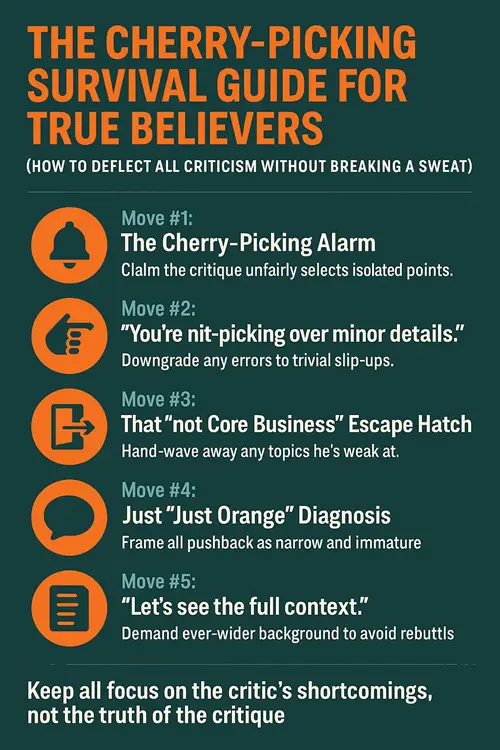|
TRANSLATE THIS ARTICLE
Integral World: Exploring Theories of Everything
An independent forum for a critical discussion of the integral philosophy of Ken Wilber
  Frank Visser, graduated as a psychologist of culture and religion, founded IntegralWorld in 1997. He worked as production manager for various publishing houses and as service manager for various internet companies and lives in Amsterdam. Books: Ken Wilber: Thought as Passion (SUNY, 2003), and The Corona Conspiracy: Combatting Disinformation about the Coronavirus (Kindle, 2020). Frank Visser, graduated as a psychologist of culture and religion, founded IntegralWorld in 1997. He worked as production manager for various publishing houses and as service manager for various internet companies and lives in Amsterdam. Books: Ken Wilber: Thought as Passion (SUNY, 2003), and The Corona Conspiracy: Combatting Disinformation about the Coronavirus (Kindle, 2020).
Check out my other conversations with ChatGPT
NOTES ON CREATIONISM
The Cherry-Picking Charge The Cherry-Picking Survival Guide The Semantics of “Spirit” The Cherry-Picking Survival Guide for True BelieversHow to Deflect All Criticism Without Breaking a SweatFrank Visser / ChatGPT
 Ken Wilber has a devoted readership, and with devotion comes an ironclad toolkit for swatting away inconvenient questions. Over the years, certain maneuvers have become so predictable they might as well be printed on laminated cue cards. As someone who's been on the receiving end of these moves for decades, I thought I'd do a public service by compiling the Official True Believer Playbook—complete with field-tested techniques for dismissing any Wilber critique, no matter how carefully researched. Move #1: The Cherry-Picking AlarmWhenever someone presents evidence of errors, simply announce: “You're cherry-picking!” This instantly puts the critic on the defensive. Never mind that they're highlighting patterns repeated across multiple books, interviews, and decades—just frame it as an unfair selection of isolated remarks. The beauty here is that you can demand they address all of Wilber's work, knowing full well no human could possibly do that. Bonus tip: Use an exasperated tone, as if the critic has committed a minor war crime. Move #2: The Nit-Pick ChargeIf the evidence is too strong to ignore, downgrade it to a triviality: “You're nit-picking over minor details.” Say this even if the “minor details” in question are central to Wilber's claims about science. Pretend that misrepresenting evolutionary theory is like forgetting to put a stamp on an envelope—regrettable, but hardly fatal. Pro tip: When repeated errors start to look like a pattern, accuse the critic of obsessing. Move #3: The “Not Core Business” Escape HatchIf the topic is outside Wilber's professional training—say, evolutionary biology—wave it away: “That's not even his core business.” This neatly sidesteps the fact that Wilber himself has chosen to make repeated, sweeping claims about evolution, including the assertion that natural science can't explain it without “Spirit-in-action.” By declaring the topic peripheral, you get to ignore both the content and the consequence of the error. Remember: If the critic switches to one of Wilber's “core” areas, you can reverse the move and say they're ignoring the wider context. Win-win. Move #4: The “Just Orange” DiagnosisThis one's a classic. Say the critique is “just” an Orange-level attack—a rational-empirical, modernist stage of development that lacks access to the “higher ways of knowing” Wilber embodies. This is a developmental mic-drop. You've instantly recast the disagreement as a maturity gap, not a truth question. It's no longer about whether Wilber's statements about evolution are accurate—it's about whether the critic is spiritually evolved enough to appreciate them. Pro tip: Never explain exactly how “higher” stages improve one's accuracy on empirical questions. Just imply that mystical altitude automatically trumps scientific consensus. Move #5: The Infinite Context RuleInsist that the critic hasn't read Wilber “in full context.” If they bring up a quote, demand to see the paragraph. If they show the paragraph, demand the chapter. If they show the chapter, demand the entire book. If they've read the book, demand they read all the books. This creates a context horizon that recedes forever, guaranteeing the critique never lands. Why These Moves WorkAll of these techniques share one essential feature: they keep the focus off the actual evidence. They convert the discussion into a referendum on the critic's method, motives, or altitude. By doing so, they preserve the Wilber worldview as a seamless, unassailable whole. From the believer's perspective, this isn't intellectual dishonesty—it's loyalty to the larger vision. After all, the moment you admit one piece is broken, the whole elegant AQAL cathedral starts to wobble. Final Note for PractitionersIf you master these moves, you'll never have to directly confront uncomfortable facts. Every critique can be reframed as the critic's problem—their bias, their narrowness, their developmental immaturity. And if all else fails? Just smile knowingly and say, “You'll understand when you grow.”
Comment Form is loading comments...
|